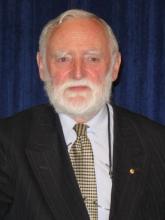Turning to the results of the estrogen-alone WHI trial, he pointed out that the therapy had no impact on incidence or death rates from lung or colorectal cancer, relative to placebo, but there was a nonsignificant 20% reduction in the relative risk of breast cancer in the hormone therapy group. This trend for a breast cancer–reduction benefit achieved significance in the nearly 4,500 study participants who were randomized to estrogen alone or placebo 5 years or more following the last menstrual period, where the hormonal therapy group enjoyed a 37% relative risk reduction. Of course, that’s not how hormone therapy is ordinarily employed in clinical practice, the physician pointed out.
One audience member rose to say that the oft-quoted sharply increased risk of uterine cancer in women with an intact uterus on estrogen alone dates back to older studies using doses that were considerably higher than those available in contemporary practice, as well as older methods of patient monitoring. She asked about the possibility of exploring ways to provide estrogen alone to menopausal women with an intact uterus without exposing them to increased uterine cancer risk.
Dr. Chlebowski said he thinks it’s certainly an appropriate research project, but he’d advise against trying it in clinical practice, given the product labeling and the malpractice lawsuit climate.
His take-home message from the expanded WHI analysis: "Even short-term use of combined-hormone therapy should be reserved for women with limiting climacteric symptoms [that are] not manageable by other means."
In a conference-closing review of the past year’s top developments in early breast cancer, Dr. Alan Coates singled out Dr. Chlebowski’s presentation on the WHI results as hands-down the most important study of the year in the field of cancer epidemiology.
"As we’ve known before, there’s a small but real increase in the incidence of breast cancer with combined-hormone replacement. The new finding is that there’s a massive increase – nearly a doubling – in mortality from breast cancer. And the mortality increase isn’t confined to breast cancer. ... This disparate increase in mortality over incidence in several tumor types suggests that the estrogen and progestin [combination] is doing something to the behavior of existing tumors," commented Dr. Coates of the University of Sydney.
It may be, as Dr. Chlebowski proposed, that the mechanism involves the angiogenic pathway, but other investigators have demonstrated that under certain circumstances, progestagens can stimulate stem cells by a paracrine RANKL (receptor-activated nuclear factor–kappaB ligand) mechanism. This could provide an equally plausible alternative explanation, he said.
Dr. Chlebowski disclosed that he receives grant support from Amgen and is on the speakers bureaus for AstraZeneca and Novartis. Dr. Coates reported having no relevant financial disclosures.


